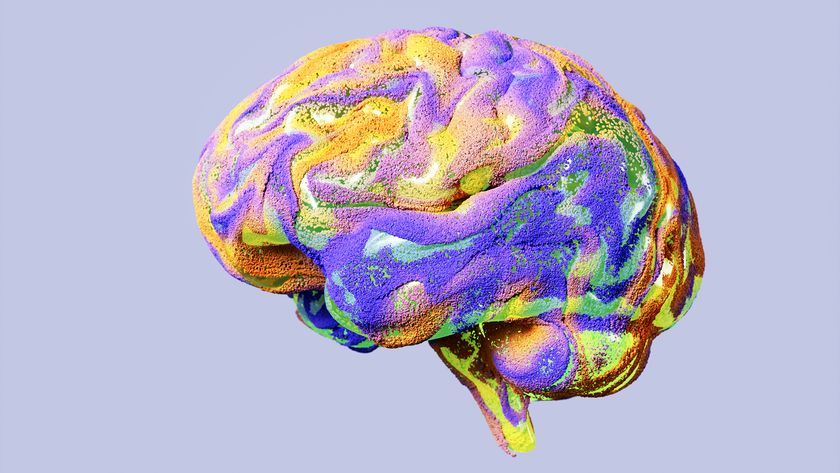Brain Chemicals Cooperate to Cause Psychosis, Study Suggests
Two brain chemicals may interact to contribute to the development of psychotic disorders such as schizophrenia, according to a new study.
The results suggest abnormal levels of the neurotransmitter glutamate may lead to changes in the levels of another neurotransmitter, dopamine, causing the transition into psychosis. Though both chemicals have been studied before, the interaction between them has been brought to light by the new study, the researchers say.
Targeting this interaction may be a way to treat these mental disorders and possibly prevent them from occurring, the researchers say.
"If we could prevent this kind of abnormal glutamate-dopamine interaction early enough in the illness, it might prevent people from actually going on to get full blown psychosis," said study researcher James Stone, of King's College London in the United Kingdom.
Dopamine and glutamate
Scientists have long known that dopamine is involved in the development of schizophrenia and other psychotic disorders. People with schizophrenia have an overactive dopamine system, releasing more dopamine than healthily people. Currently, the drugs used to treat schizophrenia aim to regulate dopamine levels in the brain.
But scientists say dopamine doesn't tell the whole story. Some people with schizophrenia don't respond to dopamine-regulating drugs, Stone said. And most of the genes that have been linked to schizophrenia are involved in the production or regulation of glutamate, not dopamine. Drugs such as PCP that act on the glutamate system produce symptoms similar to those seen in schizophrenia.
Sign up for the Live Science daily newsletter now
Get the world’s most fascinating discoveries delivered straight to your inbox.
Previous studies have shown schizophrenia patients have changes in their glutamate systems, but no one had looked at how glutamate and dopamine interact in the same person.
Stone and his colleagues examined images of the brains of 16 individuals who had some psychotic symptoms, but whose symptoms were not intense enough for them to be diagnosed with schizophrenia. Instead, they have an illness known as "at-risk mental state for psychosis," and are known to be at risk for developing schizophrenia later on. These brain images were compared to those of 12 healthily volunteers.
In the "at risk" patients, low glutamate levels in one part of the brain, called the hippocampus, were associated with increased dopamine activity in another brain area called the striatum.
This relationship was not seen in the healthy volunteers.
"This suggests that these people have something abnormal in terms of their glutamate-dopamine interactions," Stone told MyHealthNewsDaily.
Schizophrenia drugs
The results provide more evidence that glutamate is indeed involved in the development of schizophrenia, Stone said.
And the study supports the idea that drugs for schizophrenia that target glutamate as well dopamine should be developed.
It's possible that future research may lead to a way to use these chemical abnormalities, in addition to genetic testing, as risk markers for schizophrenia, Stone said.
The study is published in the October issue of the journal Biological Psychiatry.

Rachael is a Live Science contributor, and was a former channel editor and senior writer for Live Science between 2010 and 2022. She has a master's degree in journalism from New York University's Science, Health and Environmental Reporting Program. She also holds a B.S. in molecular biology and an M.S. in biology from the University of California, San Diego. Her work has appeared in Scienceline, The Washington Post and Scientific American.










